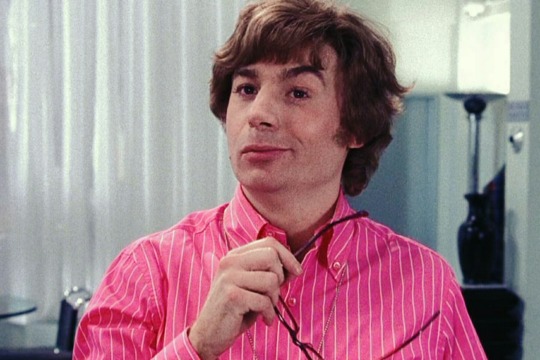#“there's a gas shortage and a flock of seagulls”
Note
in reference to the have you read LO poll by god have I tried but god. God...
A vicious cycle. I go okay I really do need to plow through more of it if I'm gonna hang around the ULO reddit, and then I step on the comically placed rake. I can't do a complete skip thing bc I'll be too disorientated on where I'm at in the plot but my brain only tolerates it up until she declares she's missing her dick appointment and like, girl. Please. You committed mass murder (if not genocide) and this is a slap on the wrist considering, let alone that your moms got the worse end of the deal.
Why it's that specific moment idk but the bottom just drops out for me and it's soooo fucking stupid because like, she couldn't have just... bitched about being stuck with hard labor? That's the bitchy shit I'd sort of expect from a privileged nepo baby and even barring the twue wuv story going on it's her actual biggest issue going on right then. What she's presently living out. But yeah no, horny, we gotta establish that she's horny. Okay.
Sorry about the borderline vent over it there's just enough really interesting thoughts mixed up in the pile of flaming garbage to make one go rabid if they stew on it, and you clearly get that given the rewrite. Have a good day.
omg i've had that exact sort of thing happen with me before too tho, not in quite the exact same sense of like, "wanting to take part in a community but struggling to get through the source material it's based on", but there are like, so many webtoons and manga and stories I've tried to read - after being urged to by pals and people who read them - that I've dropped after multiple attempts of trying to read them. And they're not necessarily dumpster fires like LO (though some of them definitely aren't great) it's more like I'm sitting there wondering "when's this gonna get good? when's this gonna be worth all the hype?" Tower of God is the biggest one that comes to mind, I have tried to read that webtoon on SEVERAL occasions and I just can't justify trudging through all those early episodes for it to maybe "get good". And that's not even me saying it's bad, it's just not interesting to me in the slightest. No hate to anyone who likes ToG, I think I've also sorta drifted away from shonen over the years so that's definitely not helping, but I just can't be bothered to try and read that webtoon anymore, I've given it so many attempts and I'm doing lmao Kudos to the creator though because it's a LOT of work to make a webtoon of that length and they should be proud of that.
Back on the topic of LO though, yeah, I was following the comic when that episode was still brand new and it really made us all go 🤨 because of how out-of-pocket it was. And then like an episode (or two?) later she bullied a former classmate of hers from 10 years ago at his job. That was the precedent for Persephone's character that was set for the third season of LO and it's just gotten worse as it's gone on.
Either way, if I'm being honest, you're really not missing much by skipping over the majority of S3 (like, if you made it to the dick appointment episode before giving up then you're already pretty close to the current point in the story). Like I'm not gonna lie, you could easily skip up to the midseason cutoff point because everything leading up to that is just a bunch of nothing. Hades and Persephone get married and it's the most underwhelming scene ever despite it being the moment people had been waiting years for, also they 'adopt' Dionysus but he's barely in the comic except for when Rachel remembers he's a character so you could also get by on minimal details. Oh yeah, and it turns out Demeter had a kid during the 10 year time skip who we see in like two episodes and then proceeds to get fridged forever.
So yeah, as much as I'd recommend people read LO as a sort of "entry ticket" into the crit community surrounding it, S3 is a lot of nothing and you would frankly not miss out on a thing if you skimmed it or skipped the middle portion of it entirely lmao
#so much of S3 of LO is that scene from austin powers#“you're not missing anything i looked into it”#“there's a gas shortage and a flock of seagulls”#“that's about it”#ask me anything#ama#anon ama#anon ask me anything#lore olympus critical#anti lore olympus#lo critical
45 notes
·
View notes
Text

🦋365 Days / 365 Characters🦋
[242/365] Characters 》 Austin Powers
"The '70s and the '80s? You’re not missing anything, believe me. I’ve looked into it. There’s a gas shortage and a flock of seagulls. That’s about it.”
❤❤❤
0 notes
Video
youtube
This week on Great Albums: a fresh look at quite possibly the 80s’ most hated band, A Flock of Seagulls! Spoiler: their music is good, people in the 90s and 00s were just mean. If you want to find out more about how having the absolute best hair in the business ended up backfiring on these poor sods, look no further than my latest video. Or the transcript of it, which follows below the break!
Welcome to Passionate Reply, and welcome to Great Albums! Today, I’m going to be diving into a discussion of quite possibly the most derided and lambasted music group of the 1980s: A Flock of Seagulls. With a strange name, a perhaps painfully stylish aesthetic, and equally trendy and of-the-moment music, that was, for a time, inescapable in popular culture, their legacy forms a perfect target for the ridicule all popular things must face in due time. But even moreso than that, I think A Flock of Seagulls have become not only a punchline in and of themselves, but also a summation of everything that was dreadful and excessive about the early 1980s, with its “Second British Invasion” of synthesiser-driven New Wave. I can think of no better example of this kind of abuse than a famous line from the 1999 comedy film, Austin Powers: The Spy Who Shagged Me. The film is largely a love letter to the 1960s and its Mod aesthetics, and the protagonist, a super-spy unfrozen from this era in time, dismisses the history and culture of the 1970s and 80s as nothing more than “a gas shortage, and A Flock of Seagulls.” But at the time of this writing, we’re about as far away from Austin Powers as the film was from the release of this album, the band’s 1982 debut LP, so I think it’s been long enough that we can start to re-evaluate A Flock of Seagulls’ rightful place in music history.
While this self-titled album was the group’s first long-player, their first release was the 1981 single “It’s Not Me Talking.” Notably, this track was actually produced by the legendary Bill Nelson, who also released it on their behalf via his personal label, Cocteau Records. Ever since discovering this for myself, I’ve found the connection between Nelson and A Flock of Seagulls fascinating, and also satisfying. Despite the gulf between their respective reputations, I do think their work has a lot in common, at the end of the day: swirling washes of synth disrupted by screaming guitars, not to mention that shared interest in Midcentury rock and roll aesthetics.
Music: “It’s Not Me Talking”
These two acts would, of course, go their separate ways shortly after, and they ended up in completely opposite camps, with Nelson becoming a cult favourite with little crossover success, and A Flock of Seagulls going on to create what is, undoubtedly, one of the most iconic songs of the entire decade.
Music: “I Ran”
What does one even say about a song like “I Ran”? Over the years, it’s certainly gotten somewhat overplayed, but I can’t really hold that against it. It’s just a damn good song. Both ethereally menacing as well as catchy and rather accessible, “I Ran” takes the atmosphere suggested by “It’s Not Me Talking” and kicks it into another gear, with a harder-hitting hook and the introduction of that highly distinctive and of-the-moment echoing guitar effect. Some will hear it as little more than evidence that the song is hopelessly dated, but I’ve never thought of it as anything other than satisfying to listen to. If you ask me, I figure all art that exists is essentially “a product of its time”--nobody ever said Michelangelo Buonarroti’s David was a lousy sculpture, just because you can easily tell it was made during the Italian Renaissance. At any rate, I’d encourage everyone reading to go back and listen to it again, trying to maintain a little neutrality. I’d recommend the album cut of it, which is significantly longer than the single version, and features a rich intro that sets the scene before that famous guitar ever makes an appearance, which I think really adds to the experience. By some reckonings, A Flock of Seagulls are sometimes considered a “one-hit wonder,” but while they certainly are remembered chiefly for “I Ran,” this album’s other singles were moderately successful as well.
Music: “Space Age Love Song”
“Space Age Love Song” is perhaps the band’s second best-remembered single, and takes their sound in a markedly different direction than that of “I Ran.” “I Ran” won popular acclaim by finding a new home for the guitar, in the midst of a sea of synth, and pushed A Flock of Seagulls into a similar space as acts like the Cars and Duran Duran, who had enough mainstream rock sensibilities to sneak a lot of synthesiser usage onto American rock radio...much as one might sneak spinach into tomato sauce when feeding picky children. But I think “Space Age Love Song” is much more palatable to listeners of pop, synth- or otherwise. It’s softer in texture, and really almost dreamy, capturing the hazy, buoyant feeling of limerence as well as any pop song ever has. I’m tempted to compare it to another synth-driven classic, whose influence towers over this period in electronic music: the great Giorgio Moroder’s “I Feel Love.” Much like “I Feel Love,” “Space Age Love Song” combines simple, almost banal love lyrics with an evocative electronic soundscape, painting a picture of an enchanting, high-tech future where human feelings like love have remained comfortably recognizable across centuries or millennia. A similar theme of futuristic love pervades the album’s second single, “Modern Love Is Automatic.”
Music: “Modern Love Is Automatic”
While “Space Age Love Song” uses simplistic lyricism to portray the relatable universality of falling in love, “Modern Love Is Automatic” gives us the album’s most complex narrative. In a world where “young love’s forbidden,” we meet a pair of star-crossed lovers prevented from being together by some sort of dystopian authority. The male member of this union, introduced as the “cosmic man,” is apparently imprisoned for the crime of loving, but the text suggests that he may escape from this prison--or, perhaps, even be freed from it. The title, repeated quite frequently throughout the track, is perhaps the mantra of this anti-love society, a piece of propaganda being drilled into us as thoroughly as it is into these subjects: Modern love is automatic, with no need for messy, unpredictable human input.
It’s also worth noting that the song is consciously set in “old Japan,” deliberately locating it in the “exotic” East. While East Asia was strongly associated with refined, perhaps futuristic culture, I can’t help but think there’s a more pejorative sentiment operating here, rooted in stereotypes of Asian cultures unduly policing sexual freedom, and other forms of personal expression and self-determination. Ultimately, despite its futuristic trappings, “Modern Love Is Automatic” isn’t really a song about technology at all, but rather authoritarianism. “Telecommunication,” on the other hand, engages more directly with that theme.
Music: “Telecommunication”
“Telecommunication” was also released prior to the self-titled album proper, and was also produced by Bill Nelson. While structurally similar to “Modern Love Is Automatic,” with an oft-repeated title, brief verses, and a generally repetitive musical structure full of meandering guitar, its text quite plainly discusses the titular field of technology, in a seemingly non-judgmental fashion--though it could be argued that the fairly upbeat music suggests a positive outlook on things like radio and TV. The one hitch in all of it is the very end of the last verse, which sets the song in the “nuclear age”--a nod, perhaps, to the darker applications of 20th Century technology. “Telecommunication” is perhaps indebted less to figures like Moroder, and moreso to Kraftwerk, who first solidified the rich tradition of stoic synth thumpers about everyday machines like cars, trains, and, of course, nuclear energy. I’m also tempted to compare it to an earlier work of Bill Nelson’s group Be-Bop Deluxe, “Electrical Language,” another bubbly number that playfully bats this concept back and forth.
The theme of “quotidian technology” is also present on the cover of this album, which features an interior shot of a living room, centered around a television set. The TV displays a figure playing guitar--perhaps one of those heroic rock pioneers of the Midcentury like Buddy Holly, whom Nelson was so keen to imitate. But what’s most immediately striking about this cover is its beautiful colour palette, full of deep, saturated jewel tones, treated softly with an “airbrush” style effect. Despite being a somewhat mundane scene, the image also features fanciful, imaginative touches: the floor of this room is actually a miniature beach landscape, with the “floor” beneath the TV actually being the surface of the ocean, and the TV appears to be surrounded by a colourful, glowing group of birds. Given the beachy surroundings, we could perhaps interpret them as the titular seagulls. It’s tempting to think of this scene as a representation of how technology can sweep us away, out of our everyday existence and into something richer and more exciting.
But perhaps it’s not so simple--note also the open window in the top left, whose curtain appears to be agitated by some sort of motion in the air. Perhaps these birds are not the products of television fantasy, but rather have flown in from the window, and hence hail from the “real world?” Given how tracks like “Space Age Love Song” and “Modern Love Is Automatic” tackle the theme of the mundane meeting the fantastical, I think this complex and arresting image is a great fit for the album.
While their self-titled debut spawned multiple recognizable hits, A Flock of Seagulls never came anywhere close to recapturing its success. For the most part, they struggled to remain relevant as time wore on, largely abandoning the sonic footprint of their first album, and chasing after new trends in music technology such as digital synthesisers. They would eventually break up during the mid-1980s, and though they’ve reunited in order to perform live several times, the book is probably closed on A Flock of Seagulls. Personally, I can’t help but wonder what might have been if they had stuck to their musical roots a bit more. You get a bit of that on their third LP, 1984’s The Story of a Young Heart, which thankfully brings back that iconic echoing guitar, and does so without sounding too much like a simple retread of “I Ran.” Out of all their other work, it’s the album I would most recommend to admirers of this debut LP.
Music: “Remember David”
My favourite track on A Flock of Seagulls’ debut LP is “Messages”--not to be confused with the track of the same name by Orchestral Manoeuvres in the Dark! Moreso than anything else on the album, “Messages” has this aggressive, insistent, driving quality, and feels less like yacht rock, and more like punk rock. Despite not being released as a single, I think it’s a very strong track that’s quite easy to get into. That’s everything for today--thanks for listening!
Music: “Messages”
16 notes
·
View notes
Conversation
Cool Cat: I want to see how the 70s and 80s turn out.
Claudette Dupri: Ze 70s and ze 80s? I've looked eento eet. Zere's a gas shortage and A Flock of Seagulls. Zat's about eet.
1 note
·
View note
Text

‘ The 70s and the 80s ? You're not missing anything, believe me. I've looked into it. There's a gas shortage and A Flock of Seagulls. That's about it. ’
@southernhospitalitymyass, ♥.
3 notes
·
View notes
Text





Austin Powers (Austin Powers Trilogy)
"The '70s and the '80s? You’re not missing anything, believe me. I’ve looked into it. There’s a gas shortage and a flock of seagulls. That’s about it.”
youtube
4 notes
·
View notes